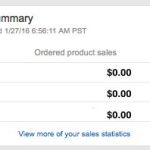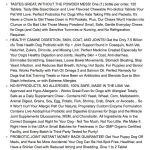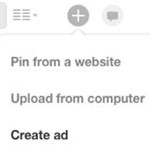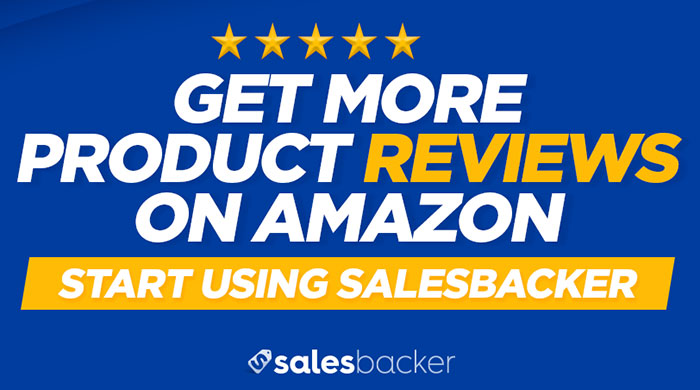Pay per click is a great way to generate more sales, but reviews can also help generate sales. If you want more product reviews try Salesbacker for free. Salesbacker lets you automatically ask your customers for a product review (and it takes less than 7 minutes to set up once and you're done). Click here.
So you’ve decided it’s time to invest some money in pay-per-click advertising.
Good call!
Marketing to online customers has become increasingly streamlined and effective with the help of the large algorithms of Google, Amazon, and Facebook. With so many people online, it’s important that you have the ability to narrow down your target audience as specifically as possible, and using Google AdWords or Amazon PPC is a great place to get started.
If you haven’t yet set up an Amazon PPC campaign, be sure to check out our other guide on “How to Set Up an Amazon PPC Campaign”. There you’ll find step-by-step instructions on how and where to put together an Amazon advertising campaign for your product. Once you’ve done that, then jump back over here to learn more about the various search types offered to sellers.
Once you’ve started to set up an ad campaign, you’ll typically be given the opportunity to enter the keywords you wish to use for the campaign. Keywords are words or phrases related to your product that link your product ad to customer searches. If you’re selling Kylo Ren t-shirts, you’ll probably choose “Kylo Ren” as one of your keywords. Then when a customer searches for Kylo Ren online, your ad (depending on your bid) will be shown to them.
But you’ll also be offered the opportunity to choose whether your keywords will be a “broad” match, a “phrase” match, or an “exact” match. At this point, many sellers begin to be confused about the differences. So allow us to give you a quick tutorial on how these various search types work.
BROAD, PHRASE, OR EXACT MATCH: WHICH SEARCH TYPE SHOULD I USE?
Broad Match
Broad match keywords allows the advertising platform (Google, Amazon, etc.) to display your ad to individuals on a broad basis. (Insightful, I know.) What this means is that your keyword(s) will be matched to search terms that not only match your keyword but are also related to your keyword. This might include synonyms, misspellings, and variations of your keyword.
Let’s quickly break this down.
Your product is Kylo Ren t-shirts. You’ve decided to choose the broad match keyword “Kylo Ren”. By using broad match, here’s a list of customer search terms in which your ad may appear.
|
Kylo Ren (of course) |
Kilo Rin (misspelling) |
|
Darth Vader’s grandson (synonym) |
Han Solo’s son (synonym) |
|
Star Wars: The Force Awakens (related) |
Darth Vader (related) |
|
Kylo Ren’s lightsaber (related) |
fight scene of Kylo Ren and Rey (related) |
Notice that even though “lightsaber” or “Darth Vader” isn’t one of your keywords, your ad will still target these searches because they are all related to your keyword.
Obviously, the more broad your advertisement is applied, the larger your audience. However, the larger your audience, the more likely you’ll be paying for clicks to your site from individuals who may not be interested in buying your t-shirt. Thus, your conversion rate on those words may not be as successful as a more precise search term might be.
Someone searching for Kylo Ren’s lightsaber, may see your ad, click on it, then quickly move on to other listings because they’ve already decided to spend their money on a powerful crossguard blade (and why wouldn’t you?). So even though you may be driving traffic to your site or listing, it may not be “qualified” traffic (customers willing to buy).
However, a broad match keyword can give you valuable information on what potential customers are searching for. You could run a broad match for a specific time period, analyze the data, then adjust your keywords to match key search terms.
Phrase Match
Phrase match allows you to narrow your target search terms to specific phrases. The key feature with phrase match is that it allows you to control word order. This will eliminate customer search terms that insert terms between the words in your phrase. However, it will still target search terms which include words before or after your keyword phrase, and it will still target variations of your phrase. Variations may include misspellings, singulars and plurals, stemmings (backpacking instead of backpack), abbreviations, and acronyms.
Here’s the way it works:
Once again, your product is Kylo Ren t-shirts. You’ve chosen the phrase match keyword term “Kylo Ren t-shirts”. By choosing phrase match, here’s a list of search terms that your ad may target:
|
Kylo Ren t-shirts (of course) |
black Kylo Ren t-shirts (word before phrase) |
|
Kylo R. t-shirts (abbreviations) |
Kilo Wren t-shirts (misspelling) |
|
Kylo Ren t-shirt (singular) |
Kylo Ren t-shirts sale (word after phrase) |
Notice that your keyword phrase remains in tact and in the correct order even though variations are allowed in each word. What you won’t see is your word order reversed (t-shirts Kylo Ren) or interrupted (Kylo Ren black t-shirts).
You can see that by using phrase match, you’re eliminating customers who aren’t necessarily in the market for a Kylo Ren t-shirt. So your ad won’t appear for search terms like “Darth Vader” or “lightsaber”. In this way, you’re narrowing your target audience a bit more to those who are searching specifically for your type of product.
Phrase match keywords can be a great help to you as you research and analyze which specific phrases your customers are searching for. As you gain that information, you can really hone in on customers who are primed to buy and looking for your type of product.
Exact Match
By now you’re probably figuring out that each match type narrows your target audience/customers more and more. Exact match is as specific as you can be when it comes to finding qualified traffic to your site or listing.
By using exact match, you narrow down the field of customers to those searching exclusively for your keyword(s). Just as with phrase match, customers may have used a close variant to your keyword (misspellings, plurals, singulars, etc.), BUT they have not added words before or after your keywords nor have they used a synonym. Exact match will certainly lower the number of individuals who see your ad, but those who see your ad are much more likely to click on your ad (because they are search exclusively for your keyword).
One more time, your product is Kylo Ren t-shirts, and you’ve decided to use exact match on the keywords “Kylo Ren t-shirts”. Here’s the search terms that may be targeted by your campaign:
|
Kylo Ren t-shirts (of course) |
Kilo Rin t-shirts (misspelling) |
|
Kylo Ren t-shirt (singular) |
Kylo Rens t-shirt (plural) |
As you can see, you’ve really narrowed down the number of search terms that will see your ad campaign. Even if a customer searched for “I want to buy a Kylo Ren t-shirt”, they would NOT see your ad because they added words before your exact keywords. Likewise, your ad would not appear for “Kylo Ren t-shirts for sale” because the customer did not exclusively use your exact keywords.
Finding exact keywords can be difficult and time-consuming, but obviously, once you’ve discovered one, it can be a very good source of qualified traffic. The best way to find an exact keyword match is to inspecting data found from a broad match campaign report. (If you’re using Amazon PPC, you can find out how to run a report on our other article “Running Amazon PPC Reports: A Step-by-Step Guide”.) By analyzing the search terms customers are searching for, you’ll be able to uncover exact keywords that produce a higher number of clicks on your ad.
Conclusion
Which search type should you use when running an ad campaign? The simple answer is all of them.
You might think of these search terms as fishing bait. A broad match is throwing out 20 different lines with 20 different types of bait on the hook. You’re certainly going to get your bait in front of a lot of fish, but you don’t yet know which fish likes which bait. You may have 30 fish surround a single bait, but only 3 of the 30 fish take the bait. Or you may be disappointed that your bait attracted a carp that you didn’t want to eat.
As you move from broad match to phrase match to exact match, you’re eliminating some of your fishing lines and bait and narrowing in on the bait that attracts the fish you want. The ultimate goal is to cast out your best bait and watch it draw the fish you want.
Each search type has its advantages and disadvantages. If you’re just starting out with your first campaign, you may not have a lot of good, solid data to determine exact keyword matches, so simply run a broad match for one month before you analyze your customer search terms. Then slowly begin bidding on phrase matches and exact matches to see which keywords get you the highest click-through-rate (CTR).
One closing reminder: Remember that patience is one key to successful online advertising. Most online sellers don’t find advertising gold on the first or second try. But those who continue to track, test, and learn from their campaigns will become better and better at it over time.
There’s no better time to start than the present.
Now that you've learned more about PPC and can start generating more sales it's time to try Salesbacker. It's free to start and takes only a few minutes to set up once and then you're done. Click here.







